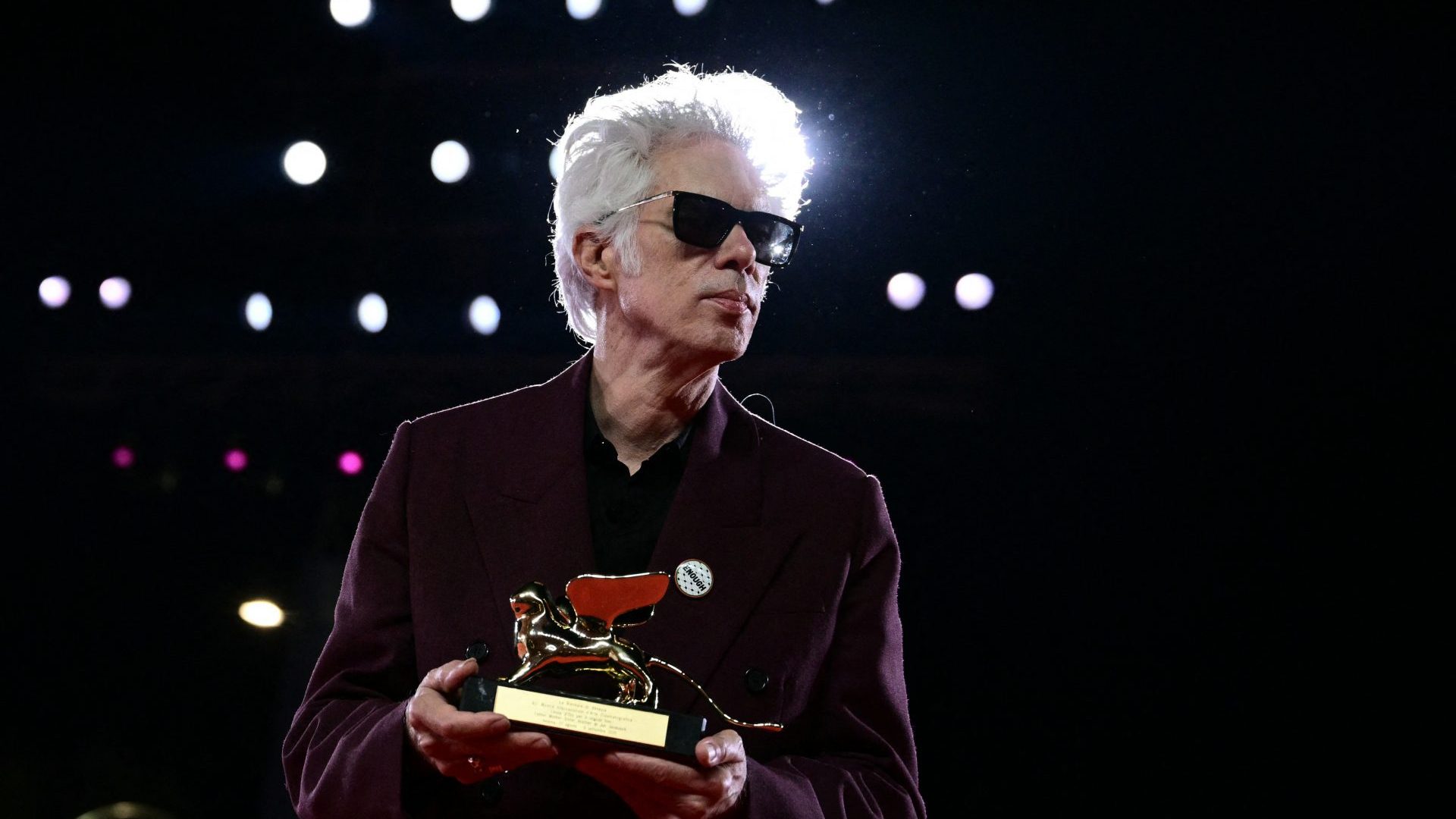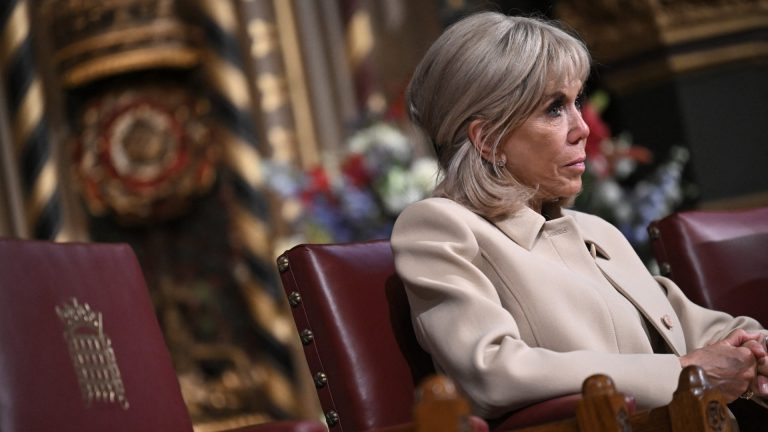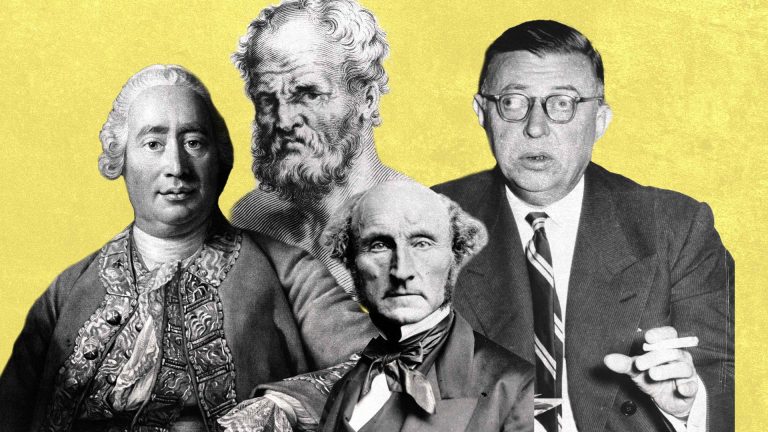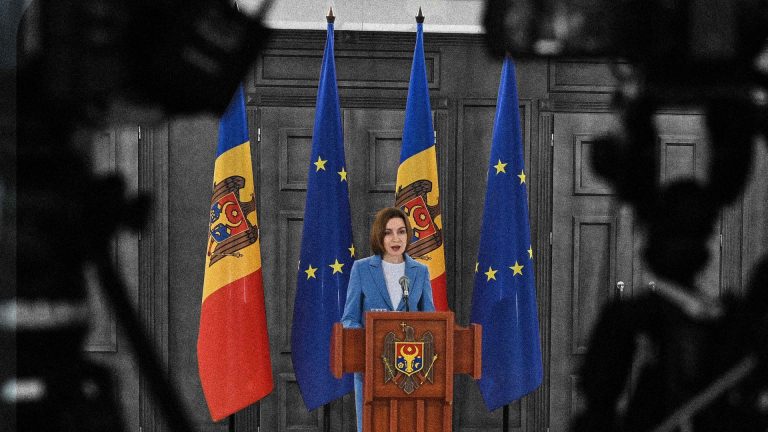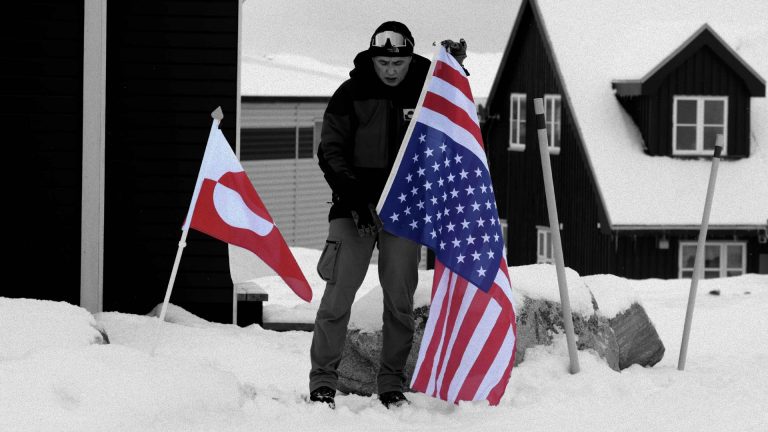This is the first paragraph of my final Venice report which I wrote on Saturday morning following the final screening:
“The future is female. It was unexpected, but the second half of the 82nd Venice Film Festival has been dominated by female directors making bold and important films. Katherine Bigelow’s A House of Dynamite addressed nuclear proliferation; Mona Fastvold’s Testament of Ann Lee is a daring musical depiction of the Shakers movement; Ildikó Enyedi’s Silent Friend closed the festival with a beautiful film which managed to combine comedy and transcendence. And then there’s the most important film not only of the festival but of the year, Kaoutha ben Hania’s The Voice of Hind Rajab. The boys were beaten into a cocked hat.”
Alas no longer. Cult indie director, Jim Jarmusch scooped the award with a laidback hangout movie about family relationships: Father Mother Sister Brother. More fool me for trying to get a headstart before the jury, led by Alexander Payne, announced their deliberations from the stage of the Sala Grande.
The awards are given out in reverse order of importance with the top prize, the Golden Lion, given last. Unlike the Oscars, films are not allowed more than one big prize so as the awards are announced the race for the Golden Lion narrows down. Toni Servillo’s deserved win as Best Actor for his performance in La Grazia therefore meant that Paolo Sorrentino was out of contention.
In his speech, Servillo thanked those who had embarked as part of the Freedom Flotilla sailing towards Gaza. The sentiment was warmly applauded and consistent with a festival which opened with a pro-Palestine demonstration on the beach (there was another bigger one on the Lido attended by four thousand people) and had seen Palestinian flags and expressions of solidarity with the Gazan population expressed throughout.
Conversely, stars of Julian Schnabel’s film In the Hand of Dante, Israeli actor Gal Gadot and supporter of Israel Gerard Butler had disinvited themselves when a boycott was threatened. Having seen the film – a film so bad it needs a double flush – one might feel Gadot and Butler being forced to attend would have been worse.
Gianfranco Rosi’s portrait of Naples Below the Clouds won the Special Jury Prize and Xin Zhilei won best actress for The Sun Rises on Us All. Best screenplay went to the gig economy drama At Work. The first big surprise of the night came when Ben Safdie received the Best Director trophy for The Smashing Machine, the kind of generic sports biopic that you just know has a better documentary about its subject somewhere: it does and is also called The Smashing Machine (2003). Dwayne (the Rock) Johnson is very good in it, but best director?
So now the question was which prize would The Voice of Hind Rajab win? The Silver or Golden Lion? I’d seen the film at a press screening with two thousand other journalists and in my decades-long attendance I had never felt a reaction so visceral. This was as if The Battle of Algiers was being shown during the Algerian war of liberation; as if we were watching Schindler’s List while the Holocaust was ongoing. It was the cinematic lightning rod which caught the anger and grief of everything that has happened over the last two years. Over the last half a century, if truth be told.
That is not to say the biggest prize was considered a foregone conclusion. The festival competition was strong. Yorgos Lanthimos’ Bugonia, and Park Chan-wook’s No Other Choice (see previous report) were contenders along with The Testament of Ann Lee, A House of Dynamite and Silent Friend also laying late claims. So when The Voice of Hind Rajab was announced as the second prize, there was relief it had won a major prize but recognition the jury might have believed that although the film was the most important film, it wasn’t necessarily the best film. That honour would go to… Father Mother Sister Brother.
To be clear, I liked Jim Jarmusch’s latest. It’s a triptych of semi-functional families (which is to say families). Tom Waits and Charlotte Rampling are charming and it dawdles along. But not only isn’t it Jarmusch’s best, it might struggle to crack his top ten. In this way, the evening felt like a rerun of last year’s ceremony when Pedro Almodovar’s The Next Room also bafflingly won. It’s as if the festival is now intent on rewarding veteran filmmakers for so-so films because they’re veteran filmmakers. They also tend to be men.
For years, the artistic director of the festival Alberto Barbera has faced criticisms for the lack of inclusion of female filmmakers while providing berths for the likes of Roman Polanski, Woody Allen and Luc Besson, all of whom screened films in the 2023 edition, even after the MeToo movement made their inclusion highly problematic. (It’s important to note that very different crimes, offences and misbehaviour, at different levels of possible, probable or actual guilt get poured into the leaky cancellation bucket. But here we are.)
So after Paolo Sorrentino – the Sid James of Italian cinema – Luca Gaudagnino and Yorgos Lanthimos, the competing me’h-ness of Ben Safdie and Noah Baumbach’s films, and Guillermo del Toro’s Mister Bombastic Frankenstein, it came as a relief to get to the women.
Suggested Reading
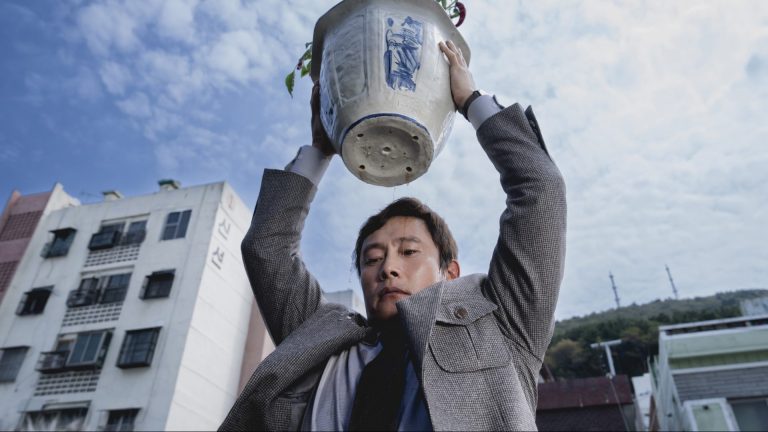

No Other Choice, the new Parasite
Mona Fastvold’s The Testament of Anna Lee had attracted interest as a return to the festival of the co-writer of Brady Corbet’s The Brutalist, which Almodovar’s film had squeezed out last year. This was a similarly daring artful attempt to reconstruct a period in which an individual battles against social conditions to pursue her vision. Amanda Seyfried gives a wonderful performance but it was a film more admired than loved.
The second Hungarian director to enter the competition after Son of Saul director, Laszlo Nemes’ The Orphan – a Soviet era Four Hundred Blows – underwhelmed early on in the festival, Ildikó Enyedi’s film Silent Friend is more ambitious and ultimately more effective. It tells three interlocking stories that run through different time periods and all centered on essentially a tree. A visiting professor from Hong Kong, played with delightful sleepiness by Tony Leung Chui-Wai, is researching brain behaviour in babies, but when locked down by COVID in an isolated university in Germany, he switches his research to a nearby tree, aided at distance by Lea Seydoux. At the beginning of the 20th century, a young woman becomes the first woman to enter the university and a young student in the sixties discovers an affinity with his girlfriend’s geranium and some electronic equipment. It is a blissed out film which shows the viewer an entirely different way of viewing the world.
Kathryn Bigelow’s A House of Dynamite also changes the way you will look at the world. A missile is detected headed for the continental United States and the news moves up through the chain of command, cutting through the personal lives of everyone touched by the news like a hot blade. It is a gripping thriller: no fat or muscle, just nerves. The ensemble – Rebecca Ferguson, Tracy Letts, Idris Elba etc – know that they can’t out-act nuclear Armageddon and get out of the way to let the drama play out as they look suitably stunned. It’s Bigelow’s best film in a filmography that has rarely been appreciated as it deserves either critically or at the box office. The Hurt Locker, which won her the Oscar, was a financial flop. Here again she could’ve easily won a best director award but for The Smashing Machine.
Finally, The Voice of Hind Rajab. It tells the true story of the five-year-old child, who was trapped in a car with her extended family members. They had been shot dead by an Israeli tank while trying to evacuate from northern Gaza. The film takes place entirely in the offices of the Red Crescent in Ramallah, where workers desperately try to coordinate the girl’s rescue. An ambulance waits eight minutes away, but in order to safely proceed, they first need to receive a safe route via the IDF and that can only come via intermediaries.
This takes hours – and all the time Red Crescent workers speak to Hind on the phone, trying to comfort her. The real recordings of the child’s voice and the ambulance drivers are used and at times we see the real faces of workers. This combination has upset some western critics as unethical. Though in the face of such overwhelmingly unethical actions as those committed by the IDF on that day, it sounds like the nittiest of nitpicking. As one of the workers points out, as a social media post is prepared, Instagram is full of dead Palestinian babies and still no one seems to care. Stop killing the babies and there’d be no way to exploit them for propaganda.
Ultimately, the film’s importance far exceeds a mere award at a mere film festival. The fact is Venice needed The Voice of Hind Rajab more than The Voice of Hind Rajab needed Venice. If film festivals and by extension cinema are going to retain any cultural importance they’re going to have to look further than the veterans and towards the future. Which, by the way, is female.


